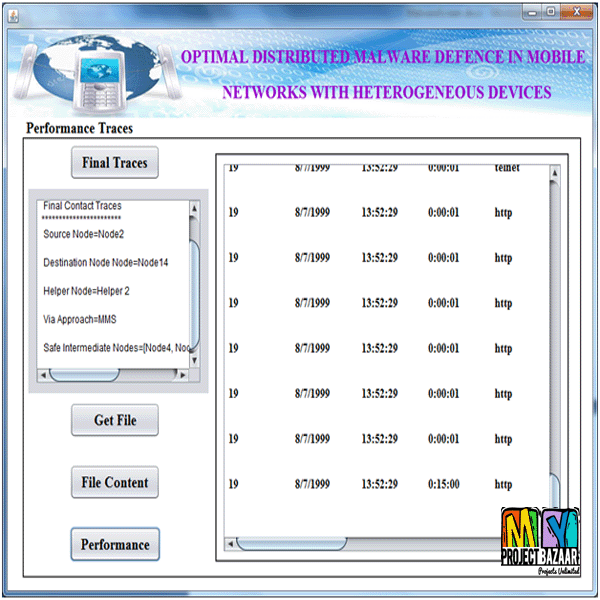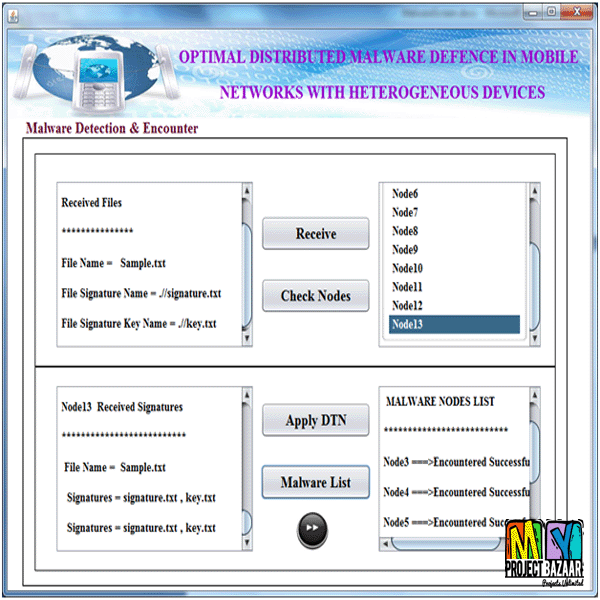
Optimal Distributed Malware Defense in Mobile Networks with Heterogeneous Devices
Product Description
Abstract—Optimal Distributed Malware Defense in Mobile Networks with Heterogeneous Devices. As malware attacks become more frequently in mobile networks, deploying an efficient defense system to protect against infection and to help the infected nodes to recover is important to prevent serious spreading and outbreaks. The technical challenges are that mobile devices are heterogeneous in terms of operating systems, the malware infects the targeted system in any opportunistic fashion via local and global connectivity, while the to-be-deployed defense system on the other hand would be usually resource limited. In this paper, we investigate the problem of how to optimally distribute the content-based signatures of malware, < Final Year Projects > which helps to detect the corresponding malware and disable further propagation, to minimize the number of infected nodes. We model the defense system with realistic assumptions addressing all the above challenges that have not been addressed in previous analytical work. Based on the framework of optimizing the system welfare utility, which is the weighted summation of individual utility depending on the final number of infected nodes through the signature allocation, we propose an encounter-based distributed algorithm based on Metropolis sampler. Through theoretical analysis and simulations with both synthetic and realistic mobility traces, we show that the distributed algorithm achieves the optimal solution, and performs efficiently in realistic environments.
Including Packages
Our Specialization
Support Service
Statistical Report

satisfied customers
3,589
Freelance projects
983
sales on Site
11,021
developers
175+
Additional Information
| Domains | |
|---|---|
| Programming Language |

















